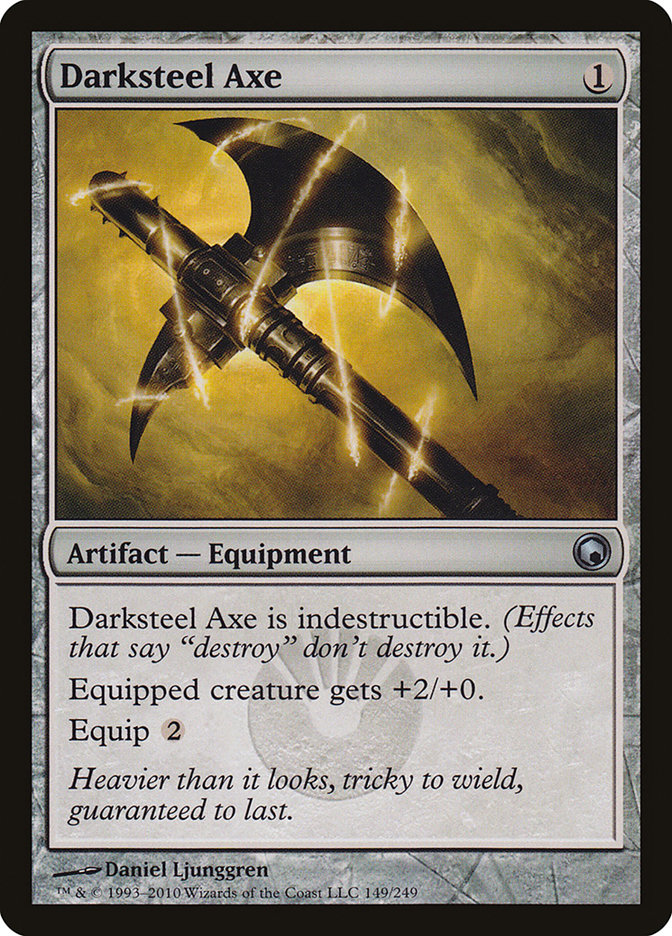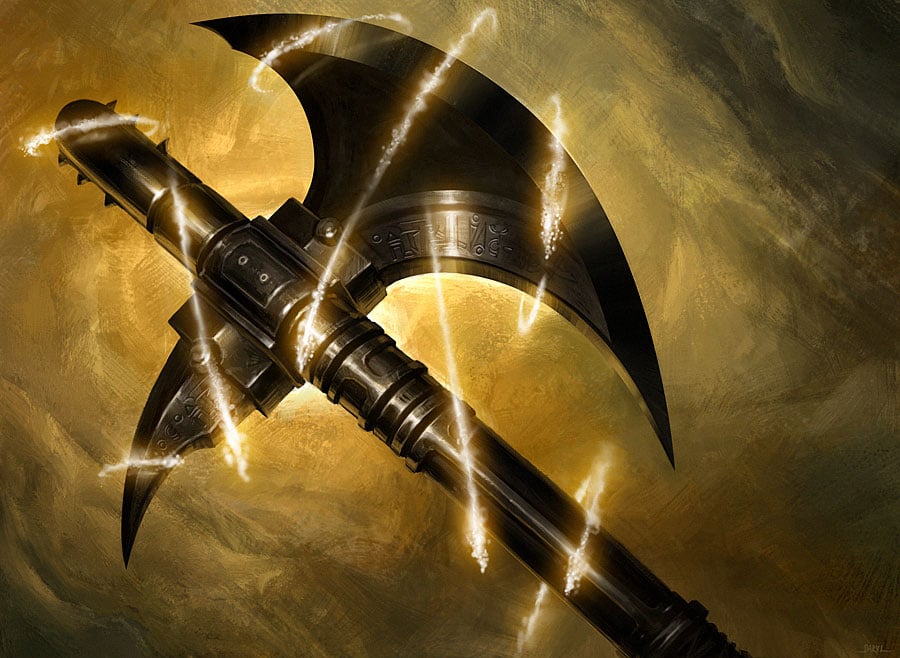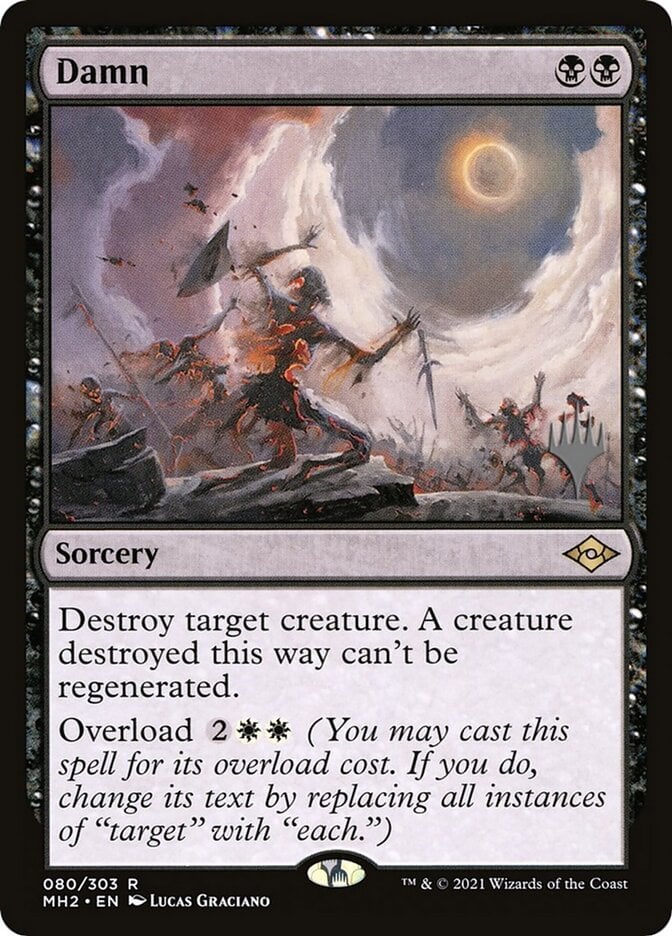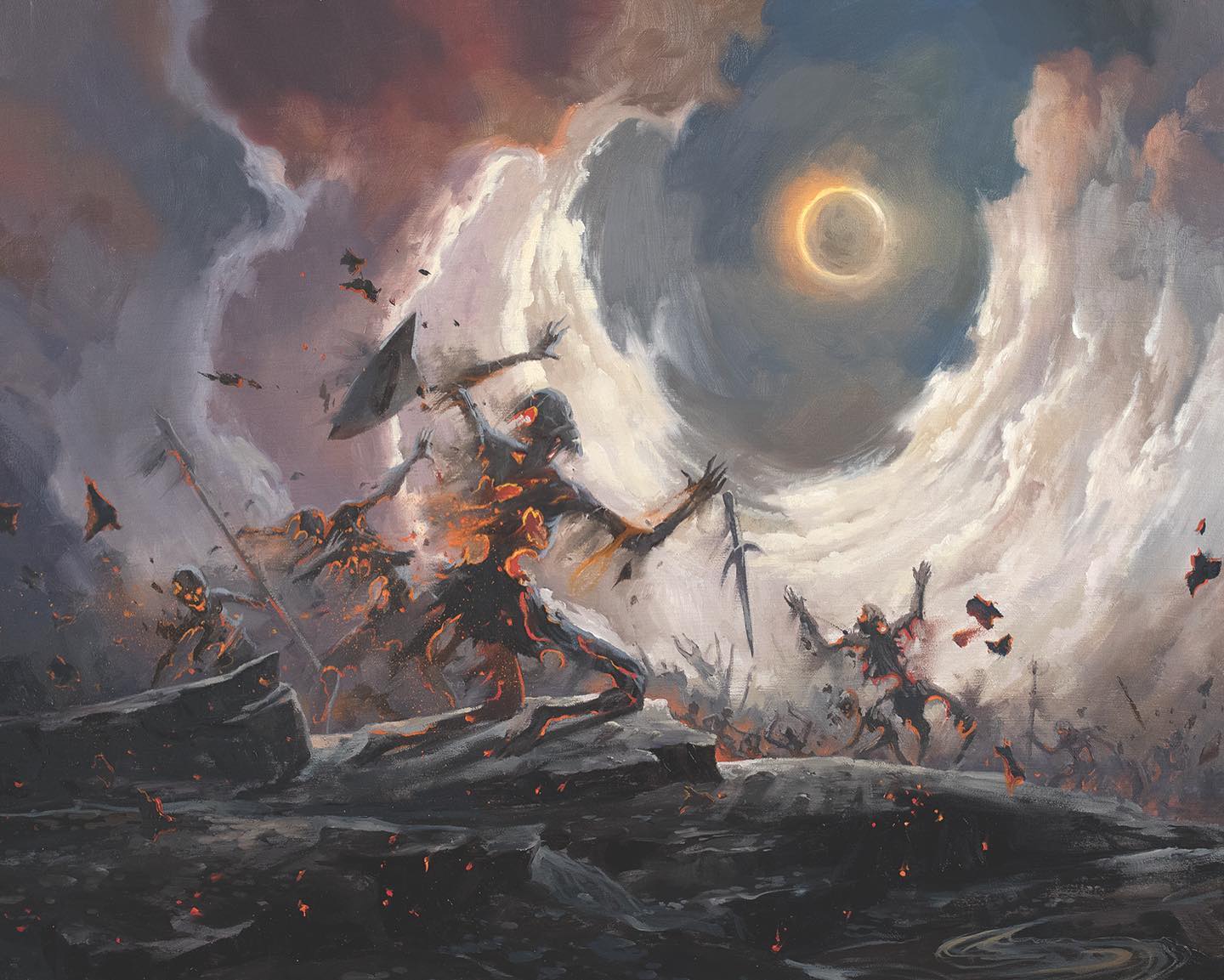From his Facebook:
This is the part of artist relations Wizards of the Coast is NOT going to like to talk about in public. This is why laid-off employees need to sign Non Disclosure Agreements (NDAs) to receive severance packages. Corporations do not like public facts.
Since I will likely never work for Wizards again, and have already stopped accepting new commissions from them for over a year now, I feel the need to share all of this factual, public information to drive the conversation regarding compensation into the light and force Wizards to engage in change for those artists, digital and traditional, who still rely upon them as an income source.
Let’s start at the beginning.
The fee for my very first Magic:The Gathering card back in 1996 was $1000.
That was modestly good pay for small, work-for-hire spot illustration artwork where the artist had a large creative control in the process. Over the years I continued to work with new commissions from Wizards even as the art management of the content grew with heavily directly style guides and the basic fee stayed the same. I did my best to deliver exceptional high quality oil paintings at those fees, including illustrations like Cartographer, Mirari, the 7th Edition Shivan Dragon, and the suite of characters for Ravnica - Razia, Tolsimir, Szadek, Agrus, and the Sisters.
Stepping forward two decades, the fee for one of my artworks in a recent set from Magic, Murders at Karlov Manor, commissioned in 2023 was also $1000… 27 years and not a cent raised from my base rate. Or, when accounting for inflation, the fee is actually far lower, at $516 in relative dollar value comparison
( in acknowledgement Wizards has raised their base rate to a whopping $1250 in 2024. Thanks Wizards).
Why would someone work for a client who did not raise their pay after 27 years?
I have asked that question of myself many times. Mostly it was that I did not depend upon Wizards as a primary client, taking just a card commission here and there as desired. The connection to the game and fans was part of the deal to accept low pay.
I actually stopped working for Wizards back in 2010 over these exploitatively low fee issues. I concentrated my energies on many other professional projects. But I returned to accept new commissions from Wizards in 2017.
Why?
First, two of my artist friends and mentorees had moved into positions at Wizards as art directors. They reached out to me, and I wanted to help them create great art for the game of Magic. We are all part of an artistic community.
Secondly, I enjoy making high quality, labor intensive oil paintings for my projects, and the art directors knew the growing secondary aftermarket for Magic art was a way I could get ‘paid’ for my quality work, even if the initial commission fee did not justify the labor.
I returned not to work for Wizards’ low fees, but to stay connected to the community and aftermarket associated with Magic - convention appearances, sales of original art, signing artist proofs, cards, and playmats to fans, players, art collectors, and other artists all connected to Magic. I am a fan of this genre.
The private, secondary original art market for Magic: The Gathering card illustration has seen tremendous growth over the past two decades - from practically ‘giving away’ Magic art back in the late 1990’s for a couple hundred dollars, full color finished card art can now sell from $2000 to $10,000 and up, sketches sell for $300 to $800 and more.
The only way for me, and many other artists, to bring an exceptionally high degree of craft to the art at the pay scale Wizards offered was to recapture that invested labor in the secondary aftermarket connected to private collectors and fans. It is this aftermarket which allows Magic artists to make a modest living, knowing that financial recoupment existed beyond Wizards of the Coast’s meager initial fees.
The secondary aftermarket has helped fuel the creative energies of artists and allowed them to invest tremendous labor and quality in an extremely low paid commission.
Until it didn’t.
Recent Magic:The Gathering set releases in their Universes Beyond themed expansions appears to prohibit the sale and creation of ANY physical art and removes ALL secondary aftermarket sales - no original art, no artist proofs, no prints, no playmats, no repainted interpretations, no convention/event sketches of ANY kind for ALL of the commissioned images. All commissioned art was to be expressly and purely digitally executed, the initial low work-for-hire fee was the ONLY compensation.
Using a conservative estimate, Wizards removed secondary aftermarket sales of $3+ million from artists working upon the Universes Beyond, The Lord of the Rings set. Thank you for supporting your artists Wizards.
This digital only art requirement is in no way an industry standard for commercially commissioned artists. Wizards has introduced a new level of contractual obligations which specifically targets to destroy the private, artist based secondary aftermarket sales which was directly benefiting the Magic artist, fan, and collector community.
Why? I have no reasonable assessments.
The aftermarket has zero impact on the initial sales of the game and product to the millions of players worldwide in ten languages. In fact the aftermarket greatly benefits the game through player interactions with artists at events, the collecting and signing of cards, the public display and excitement of original art in game shops around the world, and the use of original art by Wizard’s itself as prizes to players.
More importantly, the aftermarket provided a broad incentive for artists to vest labor and quality into the products they were creating for Magic. This removal of incentive means that Wizards has guaranteed that the quality of art they will receive for these sets will diminish, likely impacting sales negatively.
Recently Wizards has seemingly thrown traditional artists a scrap from the table with the new Marvel set, allowing them to sell a painting from their commission into the secondary market, but treating digital artists differently with no such offering it appears.
How do you feel digital artists? Excited to work on that next Universes Beyond set knowing Wizards contractually thinks less of you as artists?
Although these new contractual obligations are only occurring with the Universes Beyond sets, it is not too hard to see them implemented on standard Magic contracts in the future. Hasbro has stepped up the Universes Beyond to be nearly half of their set releases in the future. Sadly looking forward to even more exploitative digital only contracts reducing the secondary aftermarket even further.
To add gasoline to this fire, Hasbro’s current CEO is quoted as welcomingly embracing A.I. art creation and it’s use on Magic and D&D products. It is not hard to see the leap of a digital only artist contract being replaced with digital only A.I. art now that the CEO has openly stated such a direction. Thank you for supporting, respecting, and valuing your artists Hasbro.
To all the artists working, and hoping to work on Magic, I am sure Wizards will raise the base rate again in 27 years to properly compensate the prompted A.I. robots.
In frustration and sadness for my peers,
Donato Giancola
November 2, 2024




Forget all the other traditions, the true meaning of the season is a battle of rhymes with a skeletal horse